On the afternoon of October 13, during a busy schedule as part of his visit to Vietnam, Prime Minister Pham Minh Chinh and Chinese Prime Minister Li Qiang took a few moments to immerse themselves in traditional Vietnamese culture at the Government Office.
To the tune of "Guests come to visit" and the famous “Inviting tea, offering betel” Quan Ho folk songs of Bac Ninh, the Lien anh and Lien chi (male and female singers) performed in their traditional costumes, including the ao the, khan xep, ao tu than, and khan mo qua. Their performances were smooth and soulful, creating an enchanting atmosphere.
The performers presented the Prime Ministers and their guests with beautifully prepared betel leaves in the shape of phoenix wings, symbolizing warm hospitality.
Quan Ho folk singing of Bac Ninh was recognized by UNESCO in 2009 as an Intangible Cultural Heritage of Humanity.
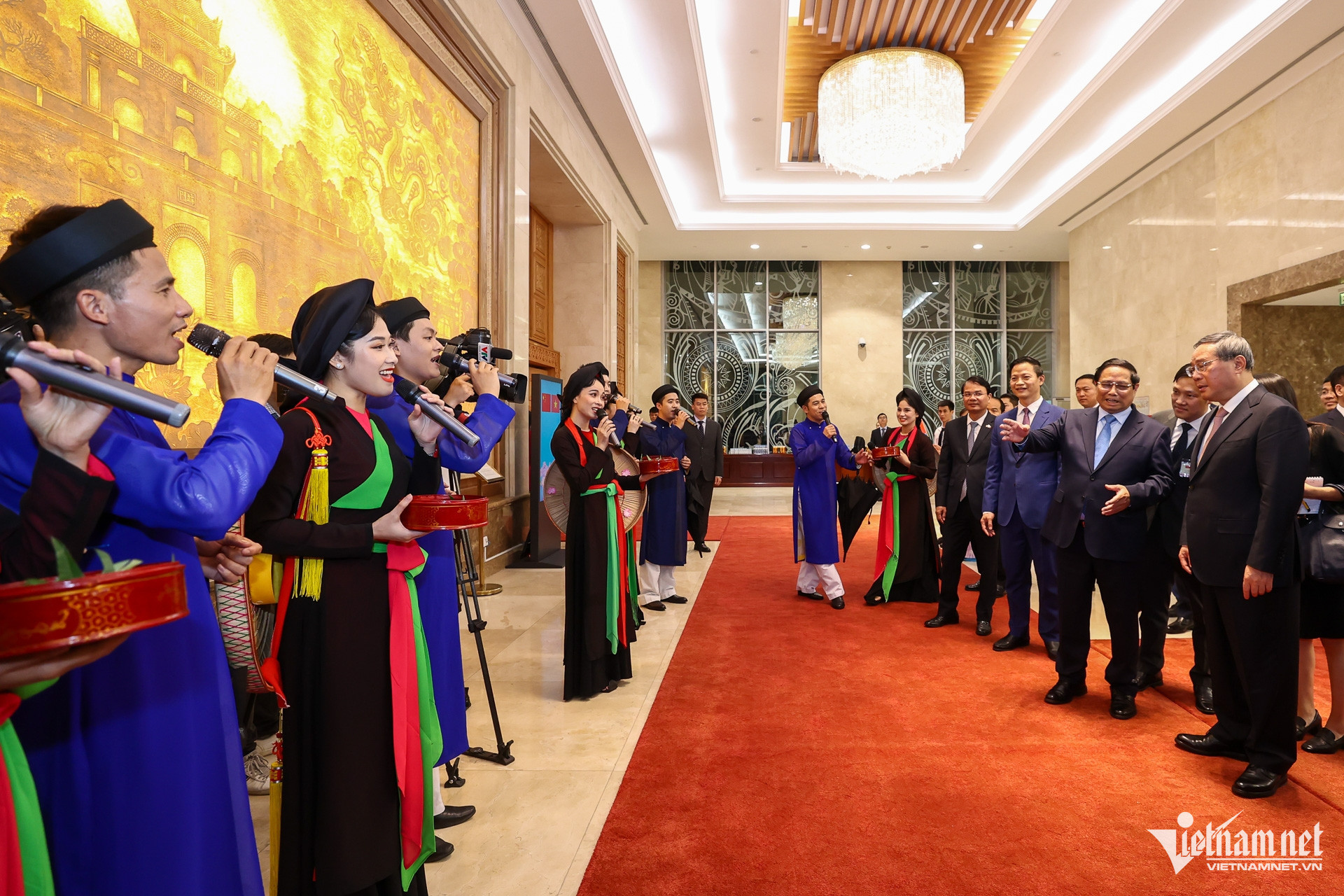
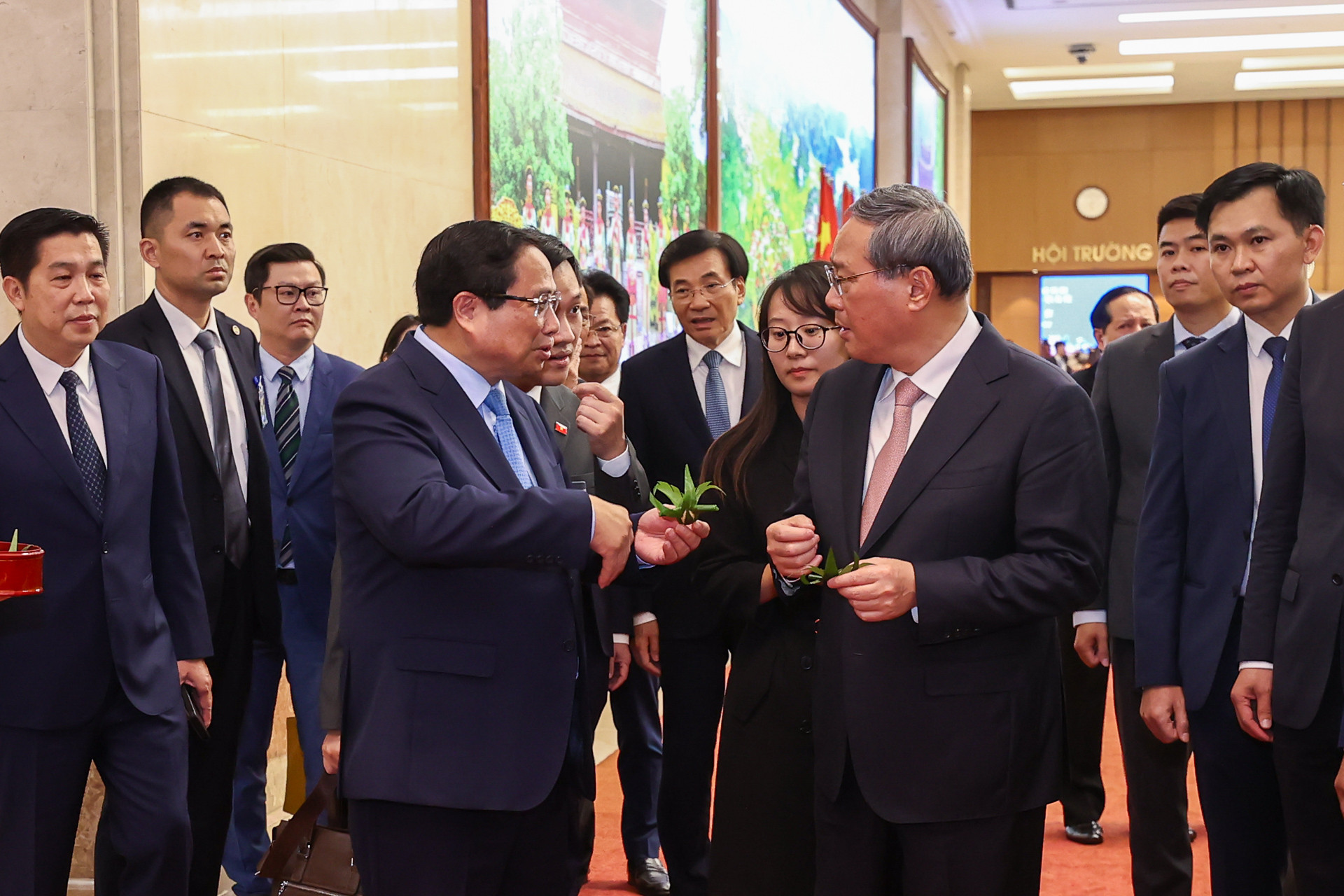
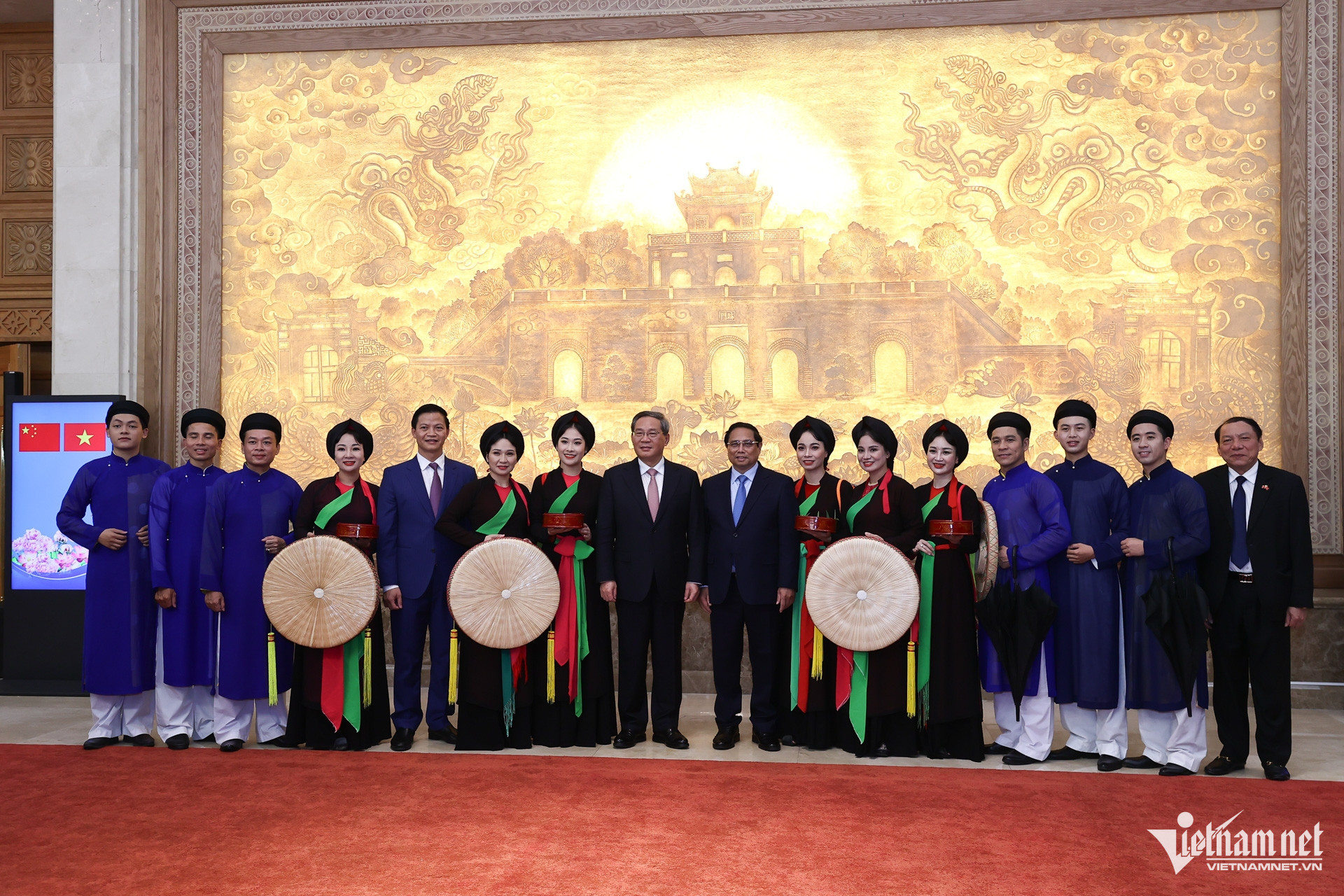
Following this, Prime Ministers Pham Minh Chinh and Li Qiang learned about Dong Ho paintings and tried their hands at the printing process.
Speaking with VietnamNet, artisans Nguyen Huu Hoa and Nguyen Thi Oanh (from Dong Ho Village, Song Ho Ward, Thuan Thanh District, Bac Ninh) expressed their pride in introducing Dong Ho paintings to the two Prime Ministers.
The artisans explained the history and the key processes involved in making Dong Ho paintings, one of the three most famous folk painting styles in Vietnam, with a history spanning over 400 years.
Dong Ho paintings are beloved by Vietnamese people because the images reflect rural life and simple activities of the farming community. The artwork is crafted entirely by hand using do paper and natural colors.
In 2013, the art of making Dong Ho paintings was recognized as a National Intangible Cultural Heritage. Artisan Nguyen Huu Hoa shared that the simplicity and natural materials of the paintings have attracted international admirers.
 |
 |
 |
 |
Artisan Nguyen Thi Oanh introduced the painting "Vinh Hoa," depicting a chubby boy holding a large rooster beside a pot of chrysanthemums. The Prime Ministers even participated in the printing process, producing the painting “Riding Buffalo While Playing the Flute,” under the guidance of the Dong Ho artisans.
After enjoying the art of Dong Ho painting, Prime Ministers Pham Minh Chinh and Li Qiang visited an exhibition showcasing some of Vietnam’s most notable agricultural products exported to China, including bird's nests, durians, fresh coconuts, bananas, coffee, and milk. These are among 14 main agricultural products exported directly to the Chinese market.
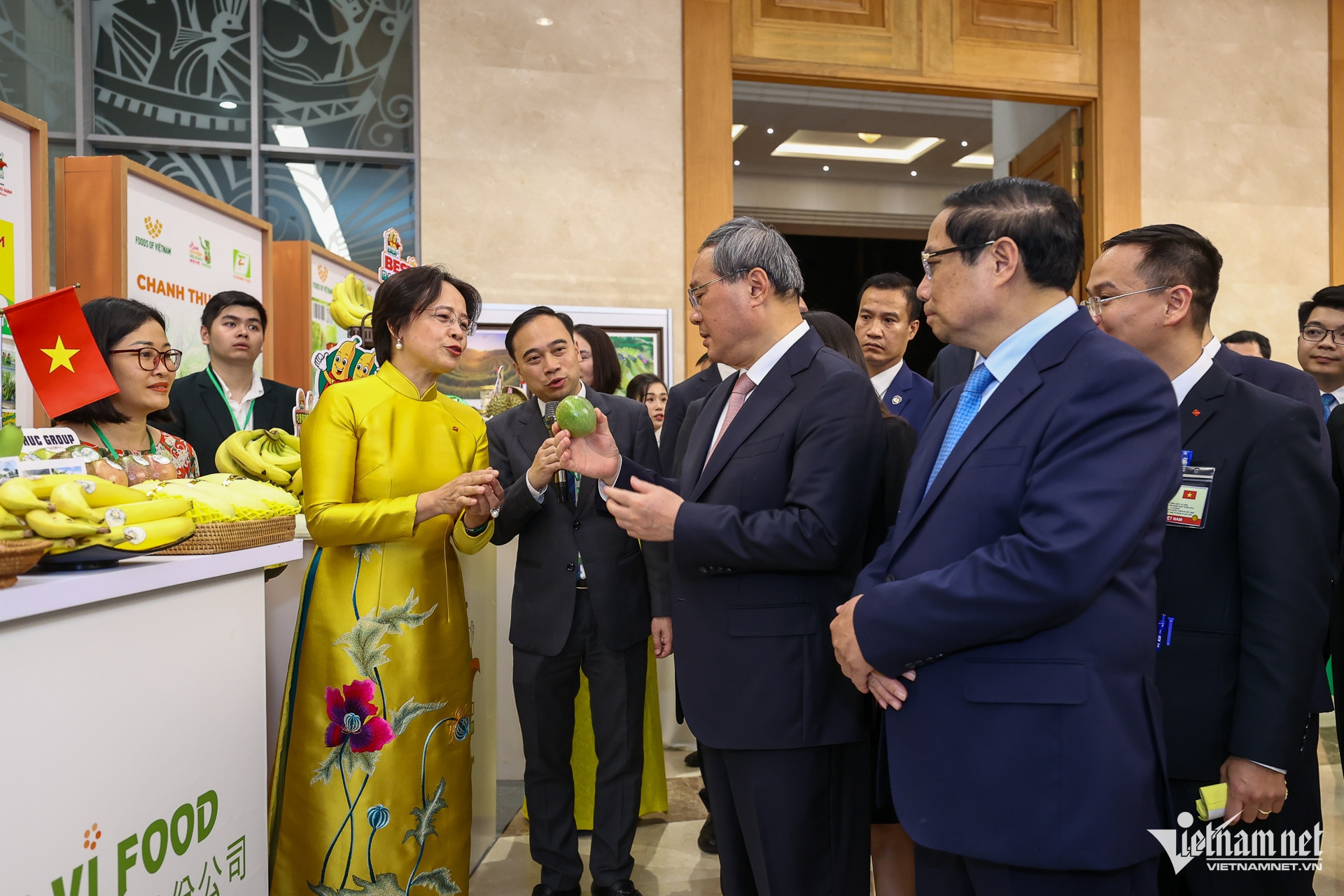
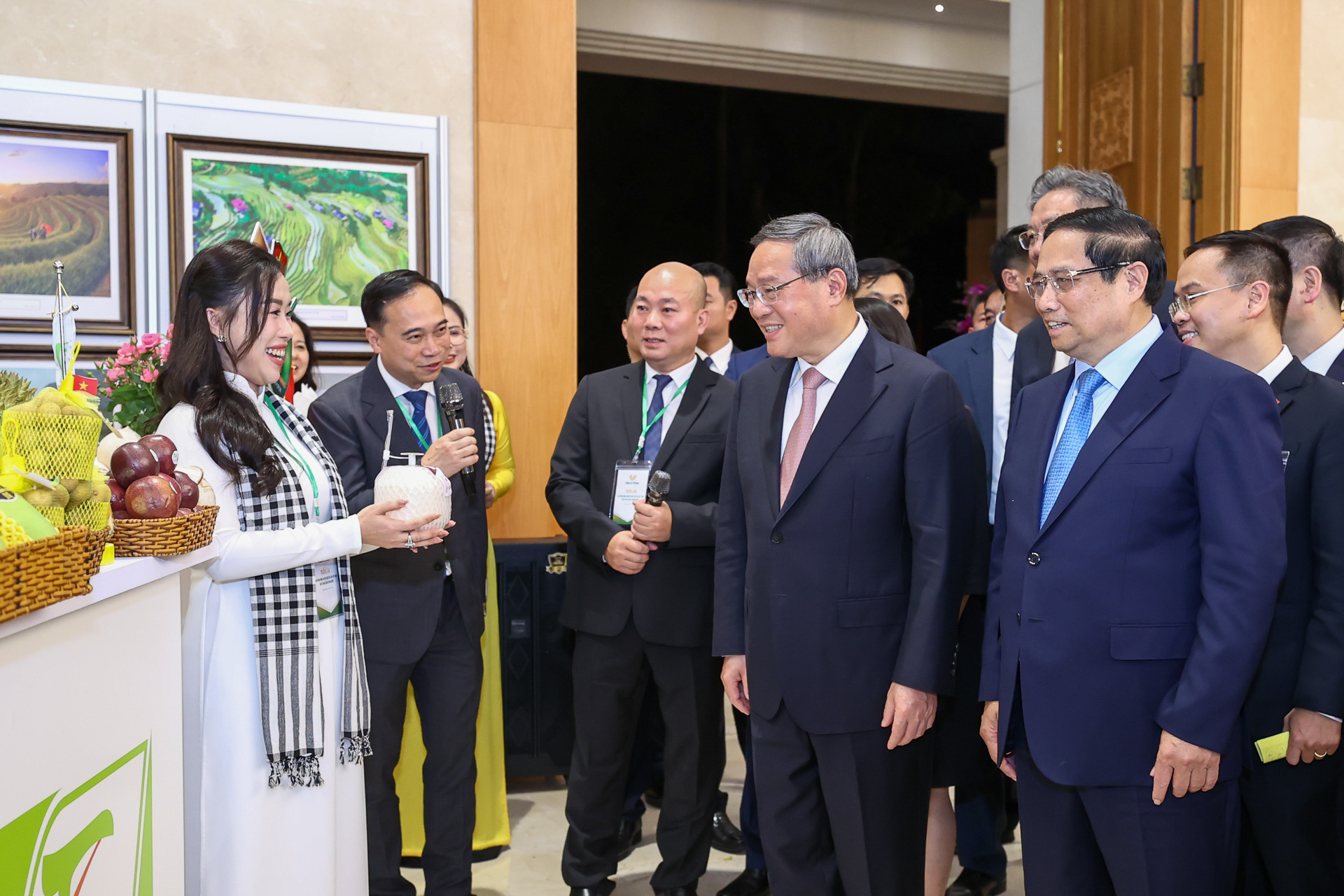
Earlier, Prime Ministers Pham Minh Chinh and Li Qiang attended and spoke at the Vietnam-China Business Forum.
Prime Minister Pham Minh Chinh noted that the economic relationship between the two countries has not yet reached the full potential of their strong political and social ties. He emphasized the need to strengthen the connection between their economies, particularly in fostering business partnerships.
The business communities of both Vietnam and China have contributed to making economic cooperation a highlight and a key pillar in their bilateral relations. However, Chinese investment projects in Vietnam have not yet fully reflected the scope and potential of the countries’ relationship. There are numerous opportunities, unique strengths, and advantages, especially considering the scale of Chinese enterprises.
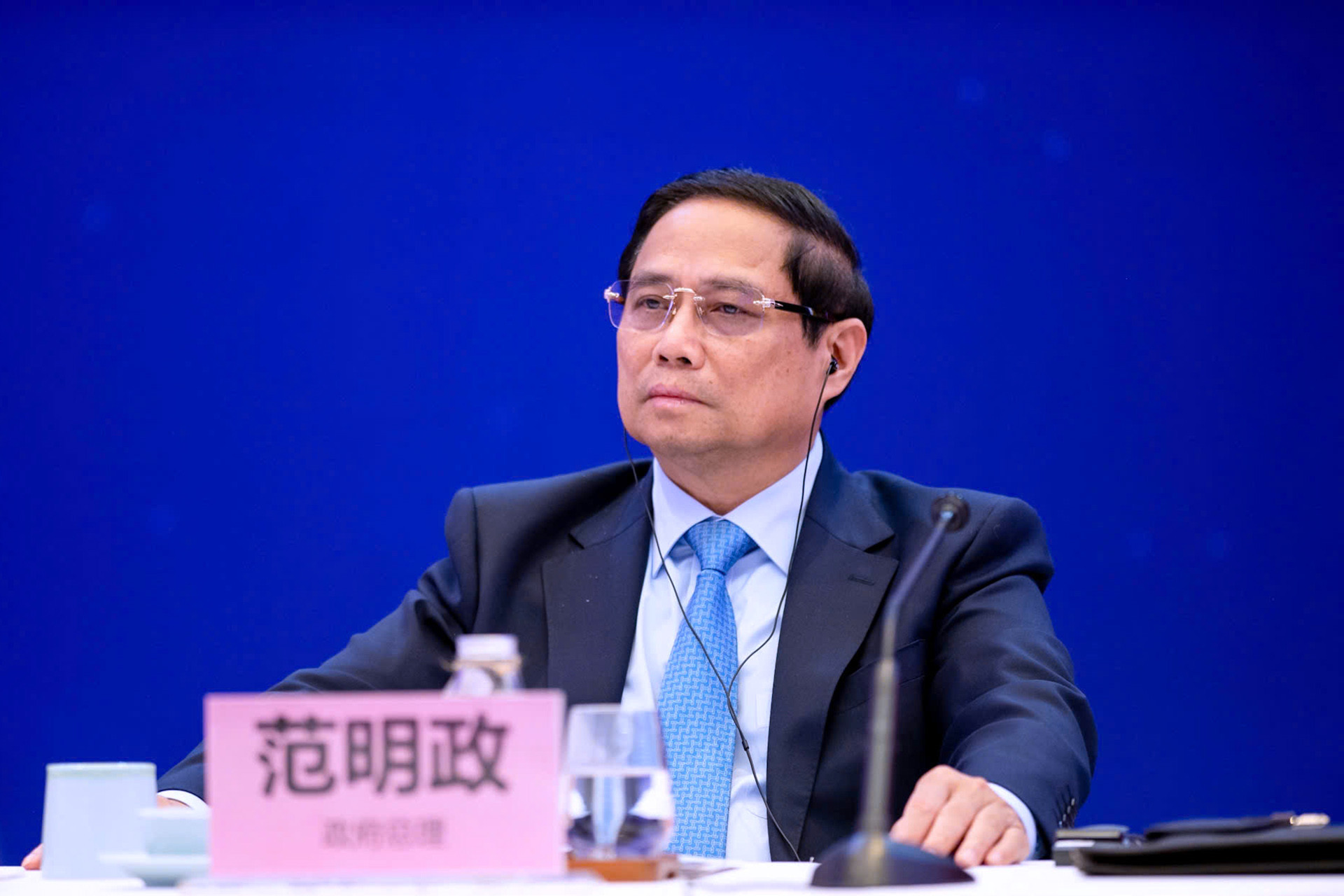
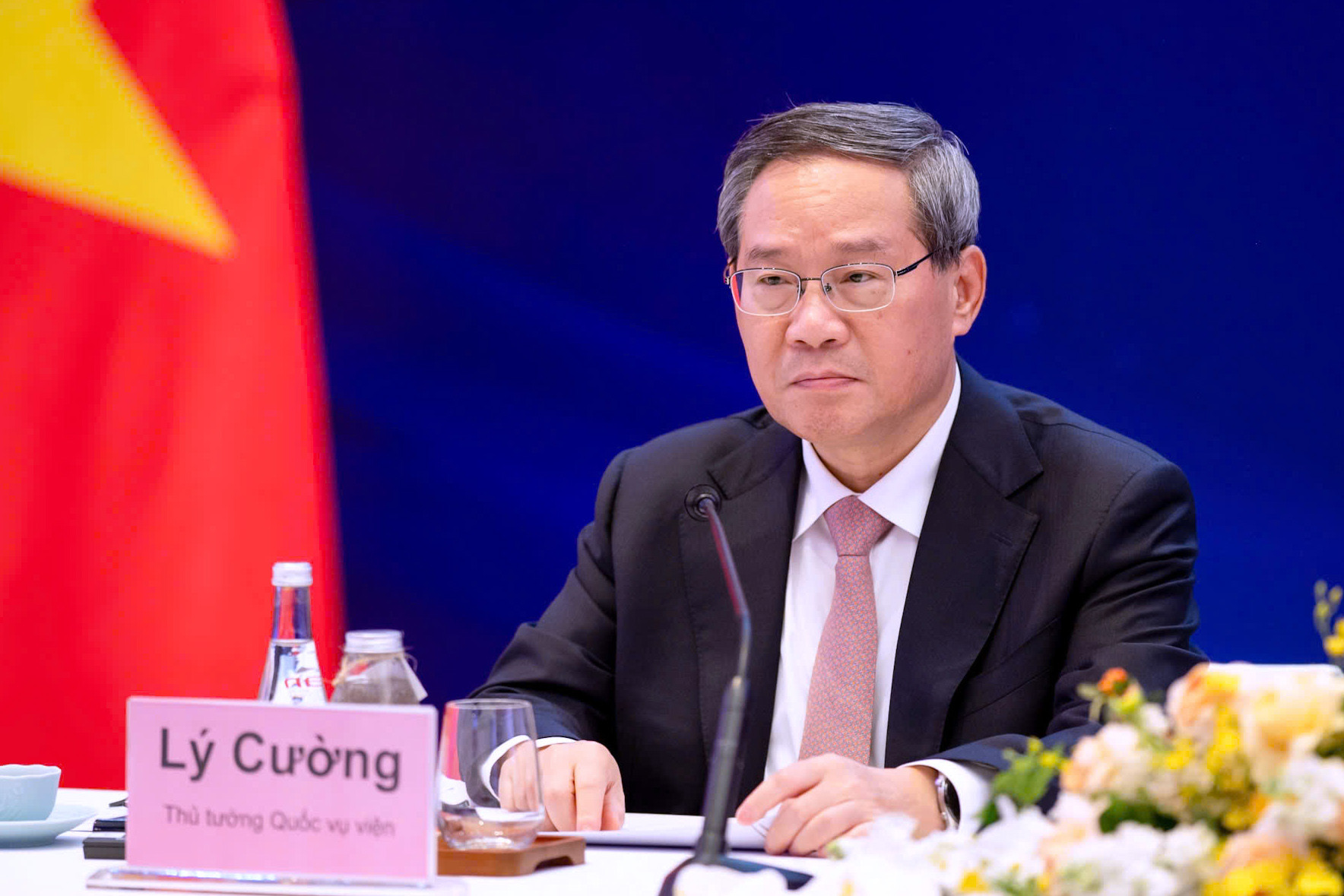
Prime Minister Pham Minh Chinh urged businesses from both countries to continue their contributions, stating, "We are already close, but let’s grow closer. We are united, but let’s be more united. We trust each other, but let’s deepen that trust. We are efficient, but let’s become even more efficient." He expressed confidence that the two governments will achieve the economic and social goals they have set together.
In all partnerships, "mutual benefit" and "win-win" must remain the ultimate goals. Prime Minister Pham Minh Chinh believes that businesses from both nations will forge even stronger ties.
Prime Minister Li Qiang noted that there remains much room for further development in economic and trade cooperation between the two countries. There is significant untapped potential to explore.
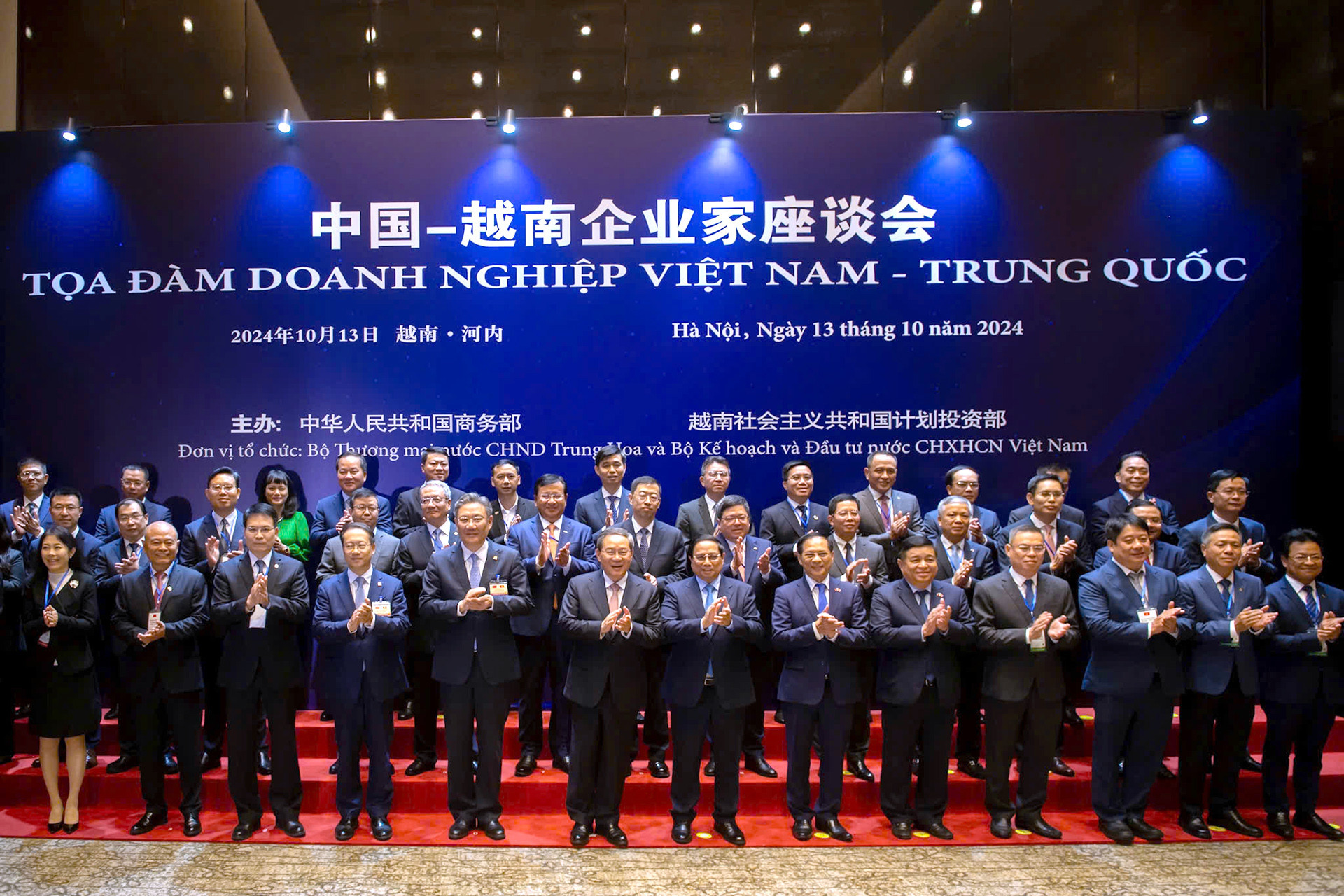
Li Qiang also called on both sides to continue enhancing their strengths and complementing each other. Each country possesses unique advantages in resources and industrial structures, creating a long-term need for collaboration. Both nations have intensified their cooperation in technology, technical skills, and production, aiming to boost their global competitiveness in value chains and supply chains.
China excels in wind and solar power, as well as electric vehicles, which are among the best in the world and align with Vietnam's energy transition needs.
Tran Thuong - Pham Hai